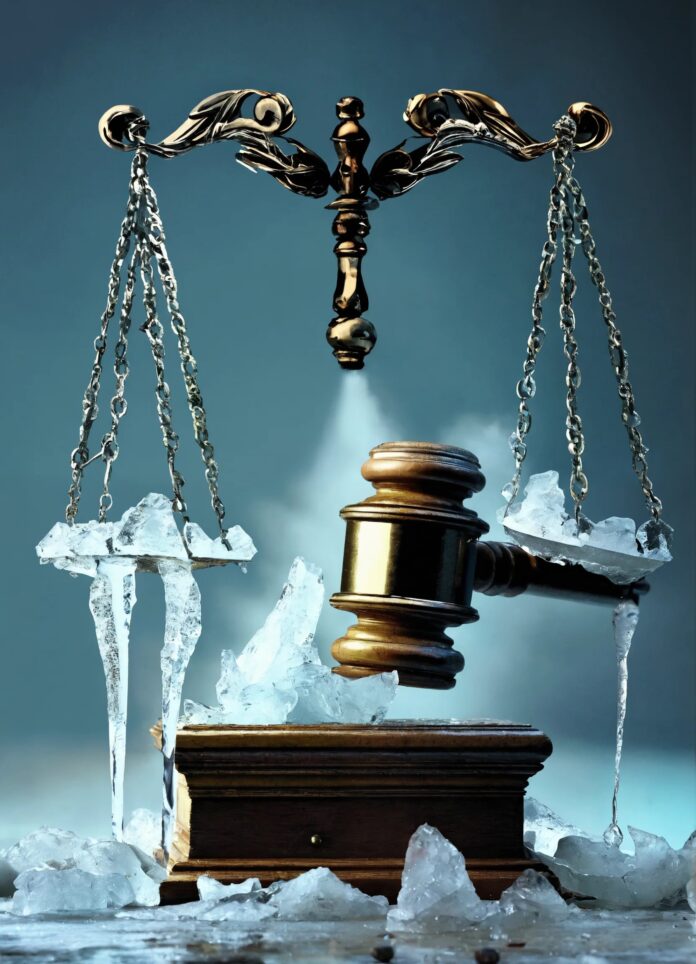Table of Contents
Protecting Your Assets During Divorce: Freezing Assets in Divorce
Freezing assets in divorce is critical to protecting the innocent spouse. “Automatic Orders” play a vital role in maintaining fairness during this process. Cases like T. K. v. D.B., and S. S. v. D.S. illustrate how these orders function and what happens when they are violated. Equitable distribution is a critical part of divorce, and the court work to ensure that all assets are revealed, protected and fairly distributed.
Automatic Orders prevent either spouse from making significant financial changes without mutual consent or a court order, ensuring that assets are fairly divided during the divorce. Automatic Orders, as discussed below play a critical role in freezing assets in divorce.
Understanding Automatic Orders’ Role in Freezing Assets in Divorce
Automatic Orders are designed to freeze the financial landscape when a divorce is filed, preventing either party from selling, transferring, or taking loans against valuable marital property. These orders aim to maintain the financial status quo and prevent either party from dissipating or concealing assets during the divorce proceedings. But, they can also come into play before the divorce is filed.
Transfers Before the Filing Are Covered
In T.K. v. D.B., the plaintiff filed for divorce, and the Supreme Court found that the defendant had made excessive charges on his American Express card after the divorce had been filed. The court awarded the plaintiff a sum equal to half of these charges.
The defendant also transferred $150,000 into 529 tuition plans for his children from a previous marriage before the divorce was filed. The court found that he knew the divorce would be filed and sought to hide assets. The court awarded T.K. $75,000.
Transfers After Divorce Might Not Be.
In another notable case, S.S. filed for divorce from her husband, D.S., and later discovered he had sold a Brooklyn warehouse, a marital asset, without her consent or the court’s approval. During the divorce proceedings, D.S. by secretly selling the property, violated the Automatic Orders in place. S.S. sought a finding of civil contempt against him. The court initially found him in contempt, but the appellate court later reversed this decision, determining that civil contempt is not an available remedy after the divorce judgment has been entered.
Civil Contempt in Divorce Proceedings
The Automatic Orders are designed to freeze assets in divorce. The court has the power of contempt to enforce the Automatic Orders.
The goal of civil contempt is to protect a party’s rights or compensate them for a violation of a court order. To hold someone in civil contempt, the court must find:
- An unequivocal mandate of the court was in effect.
- The party disobeyed the order.
- The party knew the order’s terms.
- The movant was prejudiced by the offending conduct.
If found in civil contempt, a person can face fines. In the cases discussed, the courts examined violations of Automatic Orders and the resulting financial impact on the spouses.
Criminal Contempt
In extreme cases, the court can find criminal contempt. If the court determines that the party’s violation was willful, the offender can be sent to jail.
Also, in a finding of willful contempt the court will award attorney’s fees.
Maintaining Financial Fairness
Automatic Orders are intended to keep the financial status quo during a divorce, preventing either party from hiding or wasting assets. In these cases, the courts addressed violations of these orders and the resulting financial impact. In other words freezing assets in divorce is taken seriously by the court.
Conclusion
Navigating divorce can be complex, especially when it comes to protecting your assets. Automatic Orders play a crucial role in maintaining fairness during this process. The cases discussed highlight how these orders work and the consequences of violating them. However, as seen in these cases, civil contempt is not always an available remedy after a divorce judgment. Seeking professional guidance from experienced attorneys can help you navigate these complexities and safeguard your interests during this challenging time.
If you have questions call Port and Sava at (516) 352-2999 for a free 15 Minute Consultation.

